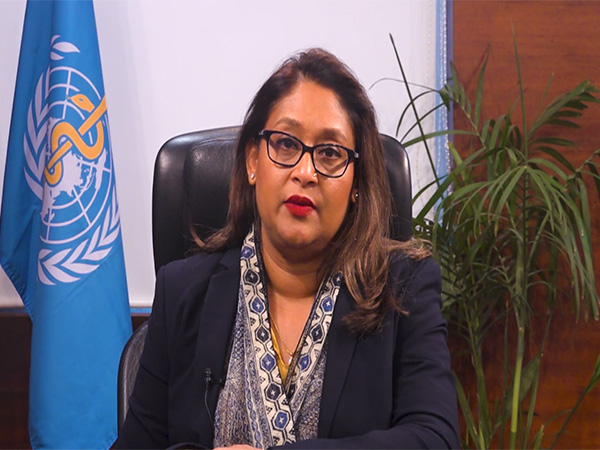Army to oversee civil jobs in Pakistan
Jun 06, 2022

Islamabad [Pakistan], June 6 : In Pakistan, the all-powerful army is now officially tasked with overseeing key civilian appointments and placements in the government.
Inter-Services Intelligence (ISI), the military's powerful intelligence wing, has been officially named the Special Vetting Agency (SVA) that will override even the civilian Intelligence Bureau (IB) that shared the task earlier. This curtails the powers of the executive that ought to have the prerogative, and the last word, in all appointments, including that of the Army Chief.
What has been going on for a long has been officially formalised, giving the Umpire unprecedented power and scope that would, in effect, if not in theory, make the political executive subservient.
In doing so, the government has given legal cover to a practice that had already been in place, but had not been formalised as part of the protocol.
According to the Establishment Division notification: "In exercise of powers conferred by sub-section 1 of section 25 of the Civil Servants Act 1973 read with notification No. SRO 120 (1)/1998 dated Feb. 27, 1998, the Prime Minister is pleased to notify Directorate General Inter-Services Intelligence (ISI) as [the] Special Vetting Agency (SVA) for verification and screening of all Public Office Holders (Officers Category) for induction, important postings/appointments, and promotions."
Fears have already been voiced about the curtailment of the executive's and in effect, the legislature's role. There are also apprehensions that more and more military personnel, serving and retired, being already vetted, may be preferred to the civilians.
The action of Prime Minister Shehbaz Sharif government has been subject of speculation.
Beleaguered by the unprecedented economic crisis and mounting opposition from Imran Khan who was voted out in April, the government is seen as resorting to this as a desperate measure to bring in the Referee, officially, to calm a heated situation wherein every institution of the state is fighting everyone else, to protect own turf, while making forays into those of others, analysts say.
In the free-for-all that is on, the army itself has been the target of much criticism, wherein its Chief, General Qaisar Javed Bajwa is harangued in public on a daily basis by Imran Khan who feels the army that originally propped him up in 2018 should have protected him, yet again, from the opposition onslaught. Khan wants a snap poll, at any cost, where he hopes to get the army on his side.
The situation is grim even on the diplomatic front. As Sharif seeks to placate the United States, and seek an economic bailout from the International Monetary Fund (IMF), Imran Khan continues to accuse the latter of hatching a conspiracy to oust him and impose an "imported government" on Pakistan.
Sharif is having to succumb to IMF stipulations on raising prices of fuels that have a cascading effect on all essential commodities. His introduction of subsidies to lessen the impact on the prices is being disapproved by the IMF that is perceived as delaying the sum Pakistan sorely needs.
Khan's latest twist is to include India and Israel as "co-conspirators" that worked with the US to oust him. Baiting all three is the favourite ploy of all politicians who seek to arouse public sentiment.
In Pakistan as of today, the president is an Imran Khan loyalist who has been dodging the government. The judiciary that contributed to Khan's ouster after the latter sought to derail the constitutional and parliamentary processes that required him to face a no-confidence motion, has now turned against the Sbehbaz Sharif government as well.
On June 6, Sharif and his son Hamza, who is chief minister of Punjab province, appeared in a court to avoid formal arrest in a case of economic irregularities and corruption. This clearly weakens the government's image making its task of governing more difficult.
The speculation is whether ISI's new task is Sharif's formal 'surrender' to the powerful men in uniform, or a clever way to step aside to let them do the difficult work, through a caretaker government till elections are held. But this is more a matter of semantics than of wider political implications. The politician is the net loser in either situation, analysts say.
The new formal role of the ISI comes after the organisation emerged from a tussle between Imran Khan and Bajwa that was widely perceived as one of the reasons for the military going 'neutral' and allowing Khan to be subjected to being voted out in the National Assembly. Khan wanted to retain Lt. Gen. Faiz Hamid as ISI chief, while Bajwa wanted to shift him. Bajwa had his way, but Hamid remains a powerful officer among the top brass, when Bajwa himself is due to complete his tenure in November.
Pakistan may be the only one to allow an intelligence agency, and that too, a military one, to oversee the recruitment and appointment of civilian officials in key positions in the government.
This formally extends the role of the military in the civilian domain and may mean more military officers being recruited to key jobs performed by the civilians. As it is, the military oversees, officially, areas like dealing with India, the Kashmir issue, relations with the US, China and the nuclear programmes.



















